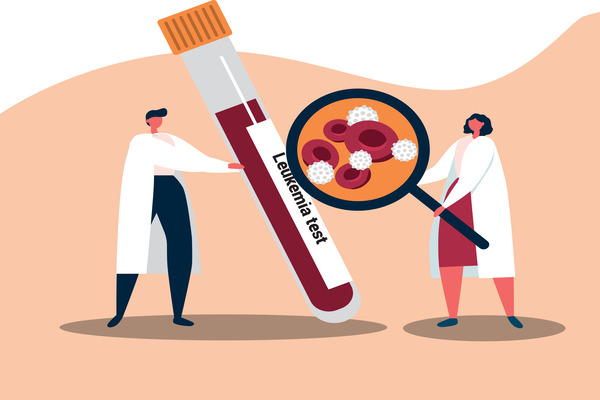Common Treatments Used To Fight Leukemia

Leukemia is a type of cancer that affects the body’s blood-forming tissues, including the bone marrow and the lymphatic system. There are various types of leukemia, some affecting mostly children and others primarily adults. In any case, leukemia typically involves white blood cells - the cells that fight off infections. In people with leukemia, the bone marrow produces excessive abnormal white blood cells, which do not function properly.
Most patients looking into leukemia treatment understand what leukemia is and how it affects their bodies. Read on to learn more about the most common treatments used to fight leukemia.
When to see a doctor or oncologist
Leukemia often presents symptoms such as fever or chills, persistent fatigue, weakness, frequent or severe infections, easy bleeding or bruising, recurrent nosebleeds, and tiny red spots in one’s skin (petechiae), among others. Therefore, it is crucial that patients visit a physician as soon as they notice irregular symptoms, especially those that do not go away.
Symptoms of leukemia are often vague and non-specific. As a result, many patients overlook early leukemia symptoms, which often resemble flu symptoms and other common illnesses. Sometimes leukemia is discovered during blood tests for another condition. Patients may also request blood tests and other screenings for irregular symptoms.
Diagnosing leukemia
Physicians may find chronic leukemia (more-mature blood cells that replicate over time) in a routine blood test before symptoms begin. If this happens, or a patient exhibits signs or symptoms that suggest leukemia, they may undergo certain diagnostic exams.
- Physical exam: The doctor will look for physical signs of leukemia, such as pale skin from anemia, swelling of the lymph nodes, and enlargement of the liver and spleen.
- Blood tests: By looking at a blood sample, a doctor can determine if a patient has abnormal levels of red or white blood cells or platelets, which may suggest leukemia. A blood test may also show the presence of leukemia cells, though not all types of leukemia cause the leukemia cells to circulate in the blood. Sometimes the leukemia cells stay in the bone marrow.
- Bone marrow test: A doctor may recommend a procedure to remove a sample of bone marrow from the patient’s hipbone. Bone marrow is removed using a long, thin needle, and a sample is sent to a laboratory to look for leukemia cells. Specialized tests of the leukemia cells may reveal certain characteristics used to determine the patient’s treatment options.
Common treatments used to fight leukemia
Treatment for leukemia typically depends on certain factors, such as age, overall health, the type of leukemia, and whether it has spread to other parts of the body, including the central nervous system. However, patients will typically undergo one or more of these common treatments:
Chemotherapy
Chemotherapy is a common treatment used to treat most types of cancers. The treatment consists of chemicals that destroy fast-growing cells in the body. Chemotherapy is the major form of treatment for leukemia. Depending on the patient’s leukemia type, they may receive a single drug or a combination of drugs. These drugs may come in a pill form or be injected directly into a vein.
Targeted therapy
Targeted drug treatments focus on specific abnormalities found within cancer cells. Targeted drug treatments can kill these cancer cells by blocking these abnormalities. Leukemia cells are tested prior to therapy to determine if targeted therapy may help.
Radiation therapy
Radiation therapy uses X-rays or other high-energy beams to destroy leukemia cells, halt their production, and stop their spread. During radiation therapy, patients lie on a table while a large machine moves around them, directing the radiation to precise points on their bodies. Radiation therapy is also used to prepare for a bone marrow transplant.
Bone marrow transplant
A bone marrow transplant, also called a stem cell transplant, helps reestablish healthy stem cells. The transplant involves replacing unhealthy bone marrow with leukemia-free stem cells that regenerate healthy bone marrow. However, before a bone marrow transplant, patients receive extremely high doses of chemotherapy or radiation therapy to destroy their leukemia-producing bone marrow. Then, they receive an infusion of blood-forming stem cells that help rebuild their bone marrow.
Immunotherapy
Immunotherapy uses the patient’s own immune system to fight cancer. The body’s disease-fighting immune system may not attack cancer cells because they produce proteins that help them hide from the immune system cells. Immunotherapy works by interfering with that process.
Schedule a consultation today
If you are experiencing abnormal, recurring, or persistent symptoms, do not hesitate to schedule a consultation as soon as possible. As with any type of cancer, leukemia is most treatable when caught in its early stages. Call our office today to learn more or schedule a consultation wherein we can order tests and get you started on treatment.
To learn more about our services, visit https://floridacosmeticcenter.com or call our Celebration office at {{PHONE}} to schedule an appointment.
Check out what others are saying about our services on Yelp: Leukemia in Celebration, FL.
Recent Posts
Lung cancer treatment has advanced significantly in recent years, allowing for more personalized approaches that improve outcomes and reduce unnecessary side effects. Personalized lung cancer treatment plans are developed based on several factors, including the type and stage of cancer, genetic markers, overall health, and the patient's unique response to specific therapies. These tailored strategies…
An ovarian cancer diagnosis can be scary, as this form of cancer often develops without noticeable symptoms in the early stages. As the disease progresses, it can become more difficult to treat, making early awareness important. Knowing the signs, understanding the diagnostic process, and learning about treatment options from an oncologist can offer patients hope…
Gynecological cancer treatments target cancers that affect the female reproductive organs, such as ovarian, uterine, cervical, vaginal, and vulvar cancers. Fortunately, there have been significant medical advances in cancer treatment that have greatly improved patient outcomes, allowing oncologists to adjust therapies to fit each patient's needs and overall health. These targeted treatments work better than…
Gastrointestinal cancer treatment is a broad and evolving field focusing on cancers affecting the digestive tract, including the esophagus, stomach, pancreas, liver, small intestine, colon, and rectum. Each area may involve different approaches based on the cancer's stage, location, and specific genetic factors. Oncologists often coordinate with surgeons, radiologists, and other specialists to create a…


